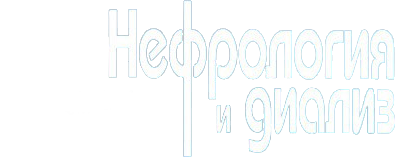<< Вернуться к списку статей журнала
Том 13 №4 2011 год - Нефрология и диализ
Генерализованные отеки. Патогенез и лечение (Лекция)
Багров Я.Ю.
Манусова Н.Б.
Аннотация: В лекции описаны и проанализированы механизмы развития отеков при заболеваниях почек, сердечной недостаточности и различных формах патологии печени. Кроме того, рассмотрены условия возникновения медикаментозных и идиопатических отеков. В лекции сформулированы также основные принципы медикаментозного лечения отеков, проанализирован механизм действия отдельных диуретиков, причина рефрактерности к ним и пути ее устранения. Делается вывод о стойком преобладании антинатриуретических механизмов над натриуретическими как конечном звене отеков различного генеза. Задержка натрия даже при тяжелой патологии почек носит активный характер.
Для цитирования: Багров Я.Ю., Манусова Н.Б. Генерализованные отеки. Патогенез и лечение (Лекция). Нефрология и диализ. 2011. 13(4):388-395. doi:
Весь текст
Ключевые слова: отеки,
антинатриурез,
нефротический синдром,
недостаточность кровообращения,
цирроз печени,
медикаментозные и идиопатические отеки,
диуретики,
oedema,
antinatriuretic mechanisms,
nephrotic syndrome,
cardiac failure,
drug-induced and idiopathic oedema,
and diureticsСписок литературы:- Di Sole F. Adenosine and renal tubular function // Curr. Opin Nephrol. Hypertens. 2008. Vol. 17 (4). P. 399.
- Dhir V., Arya V., Malav I.C., Suryanarayanan B.S., Gupta R., Dey A.B. Idiopathic systemic capillary leak syndrome (SCLS): case report and systematic review of cases reported in the last 16 years // Intern Med. 2007. Vol. 46 (12). P. 899.
- Dohadwala M.M., Givertz M.M. Role of adenosine antagonism in the cardiorenal syndrome // Cardiovasc. Ther. 2008. Vol. 26 (4). P. 276.
- Ernst M.E., Gordon J.A. Diuretic therapy: key aspects in hypertension and renal disease // J Nephrol. 2010. Vol. 23 (5). P. 487.
- Gildea J.J. Dopamine and angiotensin as renal counterregulatory systems controlling sodium balance // Curr. Opin. Nephrol. Hypertens. 2009. Vol. 18 (1). P. 28.
- Kaname S., Fujita T. Angiotensin II and the kidney // Nippon Rinsho. 1999. Vol. 57 (5). P. 1103.
- Kisner T., Müller R.U., Benzing T. Treating the symptoms in nephrotic syndrome: which therapeutic strategies are evidence based in the treatment of proteinuria? // Dtsch Med Wochenschr. 2011. Vol. 136 (7). P. 325.
- Markowitz G.S., Perazella M.A. Drug-induced renal failure: a focus on tubulointerstitial disease // Clin Chim Acta. 2005. Vol. 351 (1–2). P. 31.
- Mirzoyev Z., Anavekar N.S., Chen H.H. Renal and humoral pathophysiological actions of angiotensin II in congestive heart failure // Drugs Today (Barc). 2005. Vol. 41 (2). P. 129.
- Sarafidis P.A., Georgianos P.I., Lasaridis A.N. Diuretics in clinical practice. Part I: mechanisms of action, pharmacological effects and clinical indications of diuretic compounds // Expert Opin Drug Saf. 2010. Vol. 9 (2). P. 243.
- Schrier R.W., Masoumi A., Elhassan E. Aldosterone: role in edematous disorders, hypertension, chronic renal failure, and metabolic syndrome // Clin J Am Soc Nephrol. 2010. Vol. 5 (6). P. 1132.
- Silverberg D.S., Wexler D., Iaina A. et al. Аnemia, chronic renal disease and congestive heart failure – the cardio-renal anemia syndrome: the need for cooperation between cardiologists and nephrologists // Int. Urol. Nephrol. 2006. Vol. 38 (2). P. 295.
- Smilde T.D., Damman K., van der Harst P. et al. Differential associations between renal function and «modifiable» risk factors in patients with chronic heart failure // Clin Res Cardiol. 2009. Vol. 98 (2). P. 121.
Другие статьи по теме
